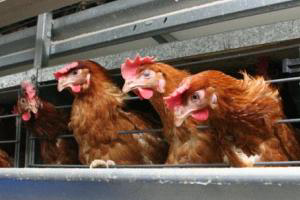New Zealand issues new code of welfare for layer hens

The most commonly used cages for housing layer hens in New Zealand will be phased out by 2022 under a new code of welfare issued by the Minister for Primary Industries, David Carter.
The National Animal Welfare Advisory Committee (NAWAC) developed the new code after reviewing the 2005 code and considering scientific evidence and submissions from the public, said committee chair John Hellström.
The new code contains minimum standards and best practices that aim to encourage the highest standards of animal husbandry, care and handling. The code covers the full range of hen husbandry topics, including the provision of food and water, shelter, and protection of health. The biggest change in the new code is to require that the cages in use now can no longer be used.
From 7 December 2012 the cages commonly referred to as “battery cages” will no longer be allowed to be installed, and existing cages will be progressively removed from use over the next 10 years.
Battery cages house three to five hens and restrict hens from expressing a range of normal behaviours,” Dr Hellström said.
The new code will ensure that hens live in an environment that meets their welfare needs and lets them carry out a range of normal behaviours, such as perching, pecking and scratching.”
Under the new code farmers will be able to house their hens in colony cages or barns (which may or may not give hens’ access to the outdoors).
Colony cages are an acceptable option under the code because they allow hens to display a range of normal behaviours. Colony cages are bigger, typically housing 40-60 birds, and include a secluded nesting area, perches and a scratching area.” Dr Hellström said.
The code replaces the existing 2005 code of welfare for layer hens.













